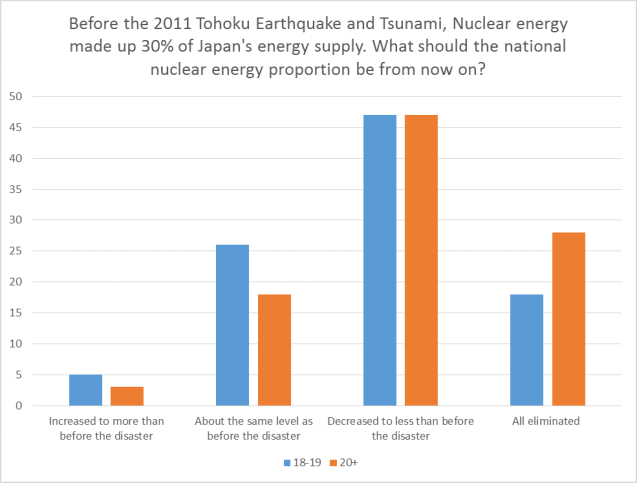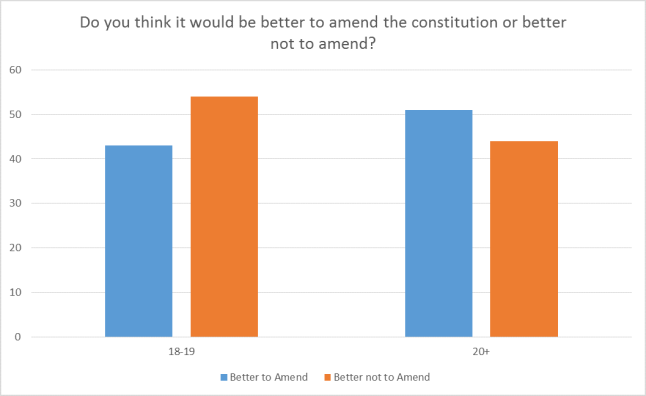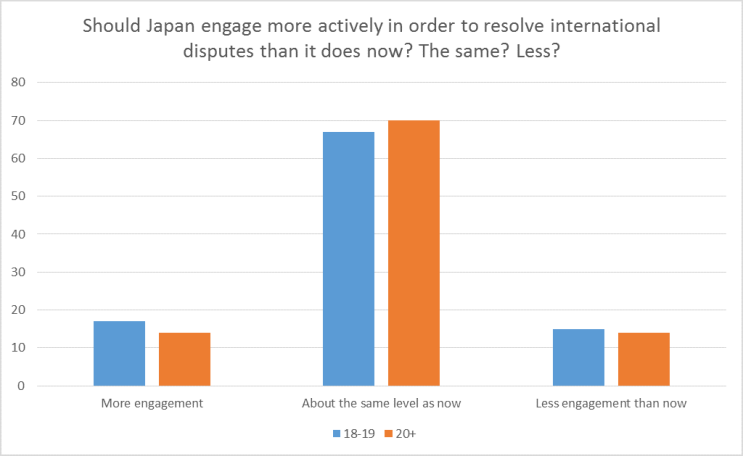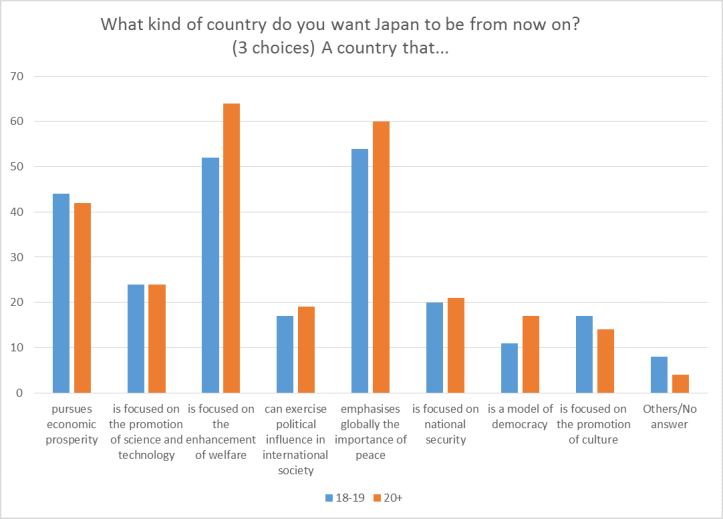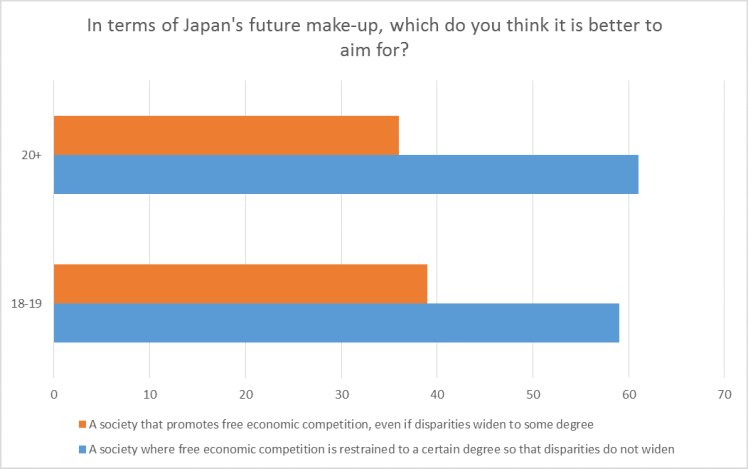According (jp) to two concurrently implemented Yomiuri Shimbun surveys, not significantly different. But there are a few ‘highlights.’
Comment: 60 percent of 18-19 year old respondents could not bring themselves to select a party they have a favourable opinion of, even when pushed to consider them in comparison! (NB: SDP and other parties at 0 or 1%). In most questions in this survey, the newly enfranchised seem about as optimistic and as pessimist (read: pessimistic) as the general population on the state of Japan’s politics.
Comment: While clearly public opinion overall still works against the current government’s nuclear energy policy, I do think it is interesting that just over 30% of 18-19 year old respondents wouldn’t mind a return to pre-disaster levels of nuclear energy or higher. Perhaps climate change concerns outweigh nuclear risk for some?
Comment: It seems that the reduction of voting age that some constitutional revisionists hoped would facilitate constitutional change may well backfire. In this survey, 18-19 year old respondents were also less approving of last year’s ‘collective self-defense’ security legislation (63% vs 57% for the over 20 sample).
Favourability towards constitutional revision ‘in general’ is normally well over 50 percent, often in the 60 percent range. The only time this has not been the case since the 1990s has been…when Abe has been in power (both times). Favourability towards Article 9 revision specifically has
dropped (jp) from the high 30s/low 40s to the 20 percentage point range! (in
some (jp) cases).
This might also be to do with Abe’s incumbency, but I suspect also that with the passage of the security legislation many moderates may not see a strong argument for going further. After all, Abe got (a sort of ) collective self-defense, and nobody strongly
believes (jp) that the SDF is unconstitutional anyway.
Comment: This poll question is interesting because of the wording regarding Japan concerning itself with ‘resolving international disputes’, which echoes the wording of a certain Article 9. Usually these questions are worded in terms of diplomatic engagement or ‘international contribution’ rather than ‘international dispute resolution’ and get a more favourable response. That said, there is not a strong desire for increased isolationism.
Comment: The Japanese public loves welfare and peace. Taken together, these poll questions would suggest some public caution of the ‘proactive contribution to peace’ narrative in terms of the nation security and values promotion aspects emphasized by the current government.
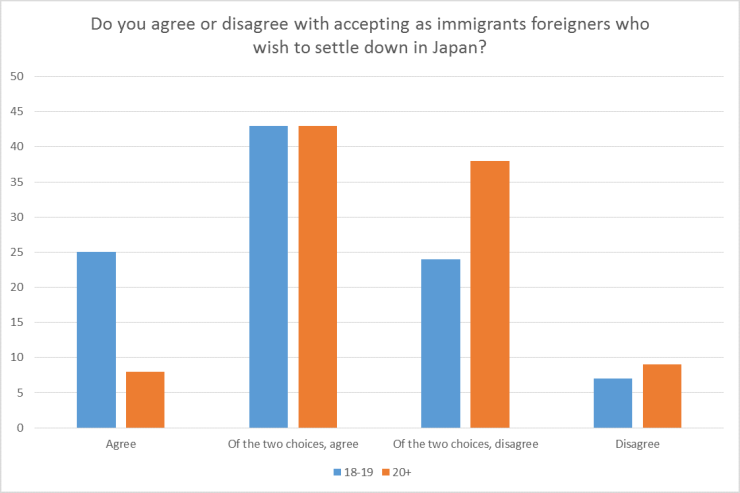
Comment: I have been paying attention to polls on attitudes to immigration in Japan for some time, and it always strikes me how responses to immigration questions can vary considerably (more than others) depending on wording and choices given. Certainly there is a hardcore faction that is virulently against an immigration policy no matter what, but from time to time there are polls that suggest there might not be quite the antipathy to certain types of immigration emphasized in the media narrative on Japan. In this case, 68% of 18-19 year old respondents, and 51% for the rest of the sample, either decisively or cautiously agree with accepting ‘committed’ foreigners. The number of foreign residents has been steadily increasing
anyway, and ‘we’ haven’t wrecked the place yet.
Comment: Japanese are clearly not ‘neo-liberals.’
Both surveys used a stratified two-stage random sampling method, were administered by post at the end of March, and targeted sample sizes of 2000 potential voters. The 18 and 19 year old survey attained a response rate of 55%, while the over 20 survey attained a response rate of 65% by the May 6 cut-off date.
